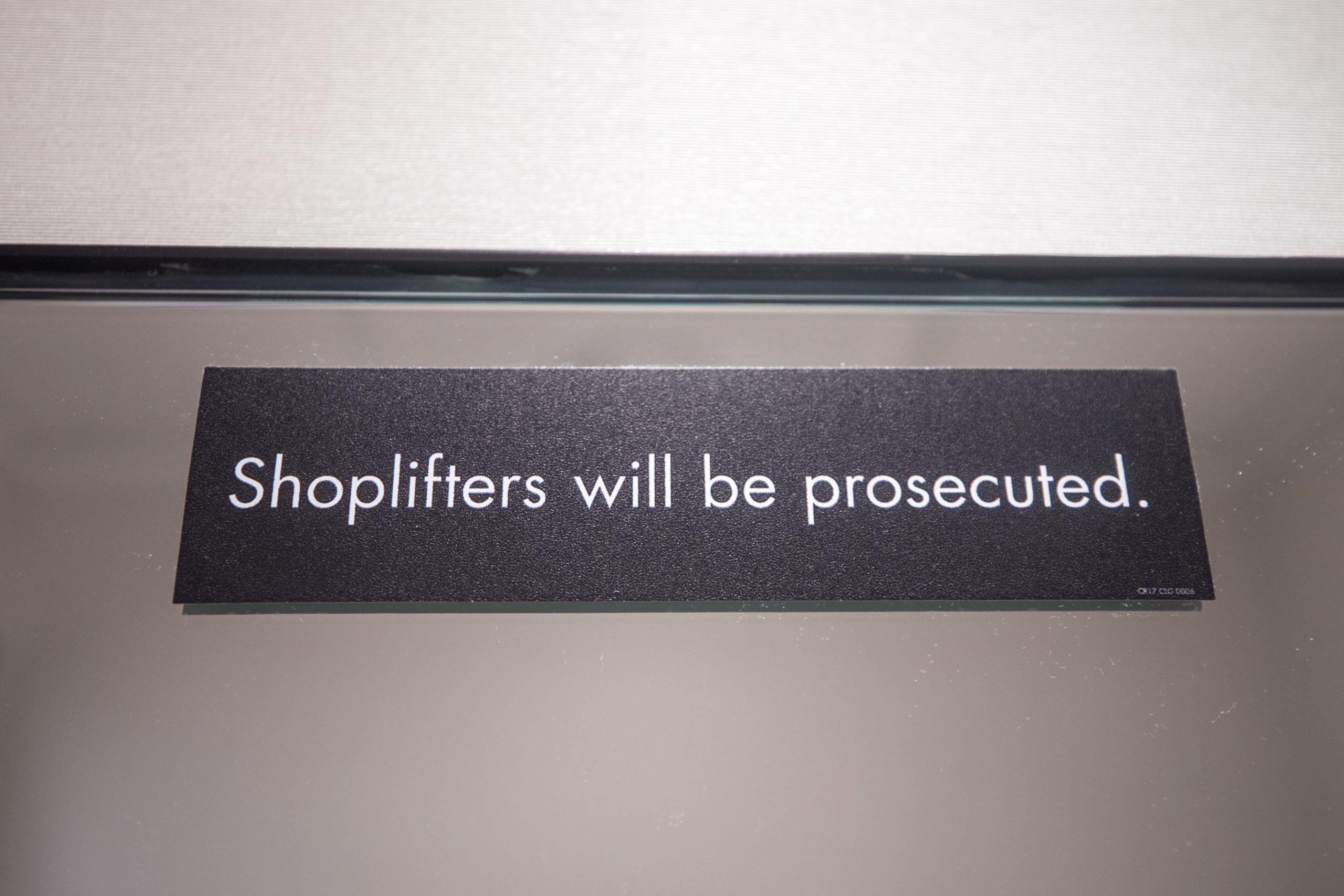Explore our background check services, including solutions for special industries.
Three reasons why you shouldn’t overlook misdemeanor criminal records on an employee’s background check
You get the criminal record report back on an applicant and you see a hit for a felony. It gives you a pit in your stomach because you know it can significantly impact the applicant’s viability with your organization – especially depending on the position. But what about misdemeanor criminal records? Should they give you the same pause? Absolutely.
Here are three important reasons why misdemeanors matter.
#1 Misdemeanors encompass a wide range of crimes that vary state to state
FindLaw has an excellent article that clearly describes the three levels of crimes, starting with an infraction for the least serious types of crimes, such as a traffic ticket, and moving into misdemeanors and felonies.
In general, a misdemeanor is a less serious offense than a felony and may include a jail sentence of less than a year. Misdemeanor crimes fall into multiple levels of severity, depending on each state’s classifications, and can include anything from reckless driving and excessive speed, to writing bad checks, petty theft and criminal trespass.
“Misdemeanors usually involve jail time, smaller fines, and temporary punishments. For example, you can be slightly over the limit during a DUI stop and get a misdemeanor, but if you have children in the car or are severely over the blood alcohol limit you can face a felony charge.” FindLaw.com
Here in Arizona for example, there are three classifications for misdemeanors. Curious about what is included in each category? Here is a comprehensive list of Arizona misdemeanor violations.
Every state is different
Many of our Clarifacts clients operate across multiple states and may encounter differences in classifications of crimes from one state to the next. Let’s take a look at two crimes that look vastly different depending on where they take place: theft and drug possession.
Stealing $1,500 in property or cash is a misdemeanor in 15 states, and a felony in the other 35. In fact, the dollar amount range for felony theft varies drastically from $200 in New Jersey to $2,500 in Texas and Wisconsin. (Source: https://www.prisonpolicy.org/blog/2020/06/10/felony-thresholds/)
These fluctuations continue to be a moving target. According to Pew Research Trust, at least 37 states have raised their felony theft amounts since 2000, citing inflation as a key driver of these increases.
Now let’s talk about drug possession. This one is also tricky given the wide variations across the country. Possessing 4 ounces of marijuana for personal use is a misdemeanor in Pennsylvania, but anything over 1 oz is a felony in Georgia.
As you can see from these two examples, one state’s felony is another state’s misdemeanor. If you only focus on felonies in your background screening, you will be applying inconsistent parameters to your applicants which may result in a less than fair evaluation.
#2 Multiple Misdemeanors Indicate a Pattern
While a misdemeanor is considered less serious than a felony in the criminal justice system, multiple misdemeanors stacked up over the course of several years indicate a pattern.
Therefore, if an applicant’s background check shows several misdemeanor charges, it could indicate that they aren’t taking these offenses seriously or are falling into a consistent routine of poor decision making. It may also speak to a person’s character if they can’t get it together and they are not learning from their mistakes.
Don’t get me wrong, we all make mistakes, but as an employer, you should evaluate if this pattern of misdemeanor crimes as it speaks to responsibility and reliability. Again, giving an applicant a fair chance is important when evaluating what is needed for a specific position.
#3 Is the Misdemeanor Relevant to the Position
When evaluating an applicant with a criminal record, you have to ask yourself how the criminal conduct is related to the specific position. This is where the three Green factors identified by the Eight Circuit Court come into play. If you need a refresher, here’s a breakdown of each of the three Green factors and how to apply them.
First, look at the nature and gravity of the offense or conduct. Second, look at the time that has passed since the offense or conduct and/or the completion of the sentence. Lastly, look at the nature of the job held or sought.
The Green factors don’t say, “look at whether it was a felony or a misdemeanor.” On the contrary. These guidelines can help you evaluate candidates on an individual basis, with regard to a specific position.
Let’s look at a scenario involving two fictional applicants for one of our Clarifacts clients who owns a chain of gas stations and convenience stores. This client often hires cashiers throughout its 13 locations, so while the applicants aren’t real in this case, this scenario is very plausible.

One applicant has a felony DUI conviction from 5 years ago and hasn’t had a single issue since. Given that the job doesn’t require driving, the Green factors would indicate that you may not want to rule out this applicant for this position.
Another applicant has four misdemeanor convictions for theft and shoplifting within the past 7 years. Is this relevant to a cashier position? In this case, one might argue that misdemeanors of this nature are very relevant to a cashier position involving access to cash or inventory, and someone who won’t stop stealing.
Again, this is just a fictional example, but it would be wise to look just as closely at misdemeanor records when evaluating an applicant’s viability with your company. It is important to discuss misdemeanor criminal records with your background screening provider and to look at the big picture of how this relates to the applicant’s position within your organization.
Not sure if your background check company is covering all the bases? We are always happy to review creating an employment screening program designed to meet your specific needs, with an easy implementation process. Just give us a call today 1-800-318-0553.
Please Note: Information and resources provided by Clarifacts are for educational purposes only and should not be construed as, or a substitute for, legal advice. Employers should consult legal counsel about their specific compliance responsibilities under federal, state and local laws and any other applicable legal and regulatory requirements.

Kevin Klimas
Kevin Klimas is the president and founder of Clarifacts, an employment background screening company serving conscientious clients for more than 20 years. As a founding member and former board member of the Professional Background Screening Association (PBSA), Kevin is outspoken about screening the right way. In fact, he speaks on this topic at HR conferences and in various media outlets, sharing his enthusiasm for helping others understand all things background checks. Kevin is a member of SHRM and holds a Fair Credit Report Act Advanced Certification from PBSA. He has a Bachelor of Science in criminology and criminal justice from Arizona State University (Forks Up!) and has nearly completed his quest to visit every Major League ballpark.
About Clarifacts
Clarifacts is a pre-employment background check company specializing in personalized solutions for human resources leaders. From basic screenings to more specific services for specialized industries, Clarifacts has the experience, knowledge and technology to create a better background check experience, supported by a friendly, responsive, tenured team.
Insights for HR Pros
Sign up for monthly(ish) in-depth articles and helpful tips to broaden your background screening knowledge.
A Helpful HR Guide to Federal Criminal Records
Understanding Federal Crimes and Criminal Records Don’t make a federal case out of it! This plea was often thrown out …
Three Lies Job Applicants Tell about Criminal Records
For most people, answering the question, “Have you ever been convicted of a crime?” is no cause for anxiety. But …
What’s in a Name? Criminal Record Searches and Aliases/AKAs
“Allow me to introduce myself. I’m Robert Baker, but you can call me Bob…or Rob Baker… or Rob Wilson-Baker… or …
Get Started with Clarifacts
See why so many HR leaders make the switch to Clarifacts for their background checks. Tell us about your needs, and we’ll get to work on your custom pre-employment screening program.




